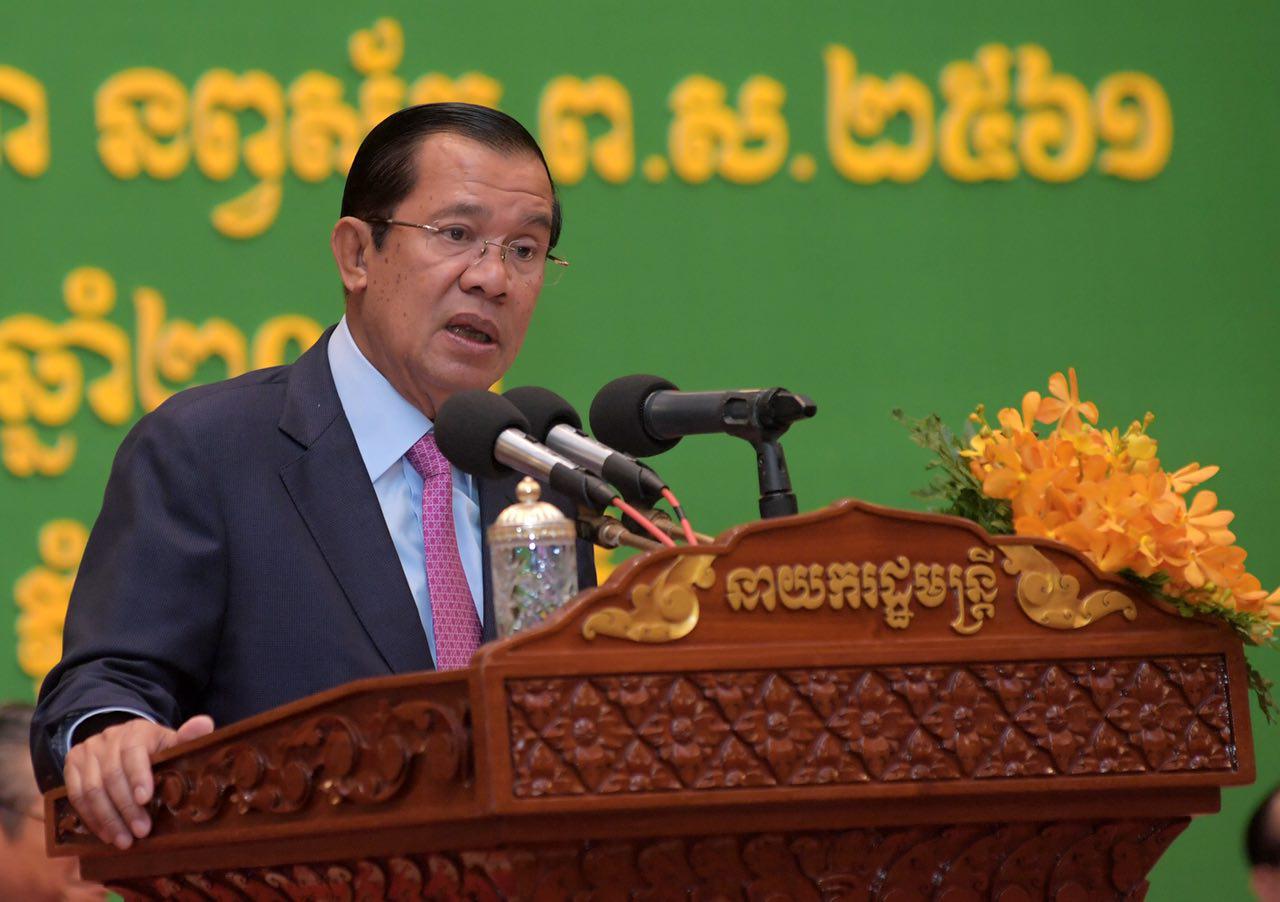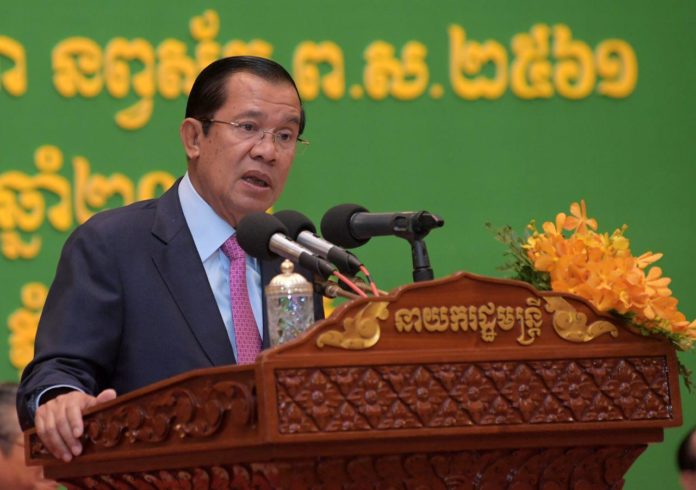In addition to the prepared text, Samdech Techo Hun Sen made the following impromptu comments that CNV had selected and translated unofficially as followed:
Distribution of Physicians According to People’s Requirements
I have said on various occasions that I attended the (health) conference on management and distribution of human resource based on findings from a study we conducted from twenty years or so ago. It was discovered that (about 70% of our physicians) in those days practiced their skills with about 30% of our population in urban areas. On the contrary, some 30% of our physicians practiced their skills on some 70% of our population in the rural areas […] I wish to have your attention on this point. While talking about distribution of physicians to local level, we must make sure the number actually reaches to districts, communes, and/or villages. It is said that from 73% of physicians (serving larger number of population) and only some 17% are operating at national level, we must make sure the figure does not concentrate physicians at provincial towns and not at district and communal levels. It is important to follow it up. Otherwise, we would have concentration of high number of physicians in lesser number of people. I am calling on efforts to distribute physicians to respond to the people’s requirements […]
Health Infrastructure Together with Distribution of Physicians
… We cannot distribute physicians to different areas without paying attention to providing with that efforts materials and medicines. There must be hospitals for them to operate. Where there was no hospital, it would be useless for such distributions. It must happen together with investment in hospitals and necessary healthcare equipment. It must also responds to the specialty that physicians are trained. For instance, it would not be productive to send a surgeon to work in a hospital where there are no facilities for their skills. This should be a criteria for the distribution of physicians. At present, our country is in a better situation than in the past when there was war and physicians would not fulfil their missions to provinces or war areas […]
War and Road Condition Hindered Distribution Efforts
Let me talk about the past when those who took medicine study at the red school (faculty of medicine) must sign up a contract to provide certain service to the state after they finished their study. We had prioritized recruitments of students from rural provinces such as Mondulkiri, Ratanakiri, Kratie, Stoeung Treng, etc. However, not all of the students recruited were from those provinces. Many were from Phnom Penh […] for instance, we allowed three students to be recruited from Mondulkiri. They would have two of them from Phnom Penh and only one from the province. When they all finished their studies, those from Phnom Penh recruited in the list of those from Mondulkiri and the one from the province himself did not go to Mondulkiri to practice their skills. They all stayed in Phnom Penh. Why? It was because of war and difficult road condition […]
Thinking of Physicians’ Livelihood to Work at Local Level
… The situation has now changed. In no time one could get to Mondulkiri. We should note that out of 1,190 health centers, about 92% has access to electric power. In the past, we would only have light from kerosene lamp, should we need light for medical attention at night. Aside from the 92% with access to electric current, the rest could have had some kind of power access either from solar or batteries […] in this connection, we also have to pay attention to livelihood of our physicians along with this distribution effort. The Ministry of Health should have this issue discussed with the Ministries of Economy and Finance, and Public Functions. Our efforts for distribution of teachers to rural areas happened along with provision of additional amount of money to cover their settlements – 80,000 Riel, 100,000 Riel and 120,000 Riel, etc. , accordingly. I encourage our thinking and similar practice for distribution of physicians […]
Redistribution of Labor for Socio-economic Development and National Defense
In certain area, when we measured land and issued titles for people, we have noticed our people’s efforts in setting up new villages […] their challenges were to have roads, water for irrigation and drinking, schools and health centers. In absence of the four core issues, their livelihoods would be in difficulties […] thereby, redistribution of labor to serve the purpose of socio-economic development and national defense would not be implementable […] people may want to read my book “Ten Years of Cambodia’s March” that I had it published in 1988, a time when Cambodia was in its stage of negotiation while fighting continued, and I wrote it in various places and at different times […] the book elaborates about the need to redistribute social labor for socio-economic development and national defense purposes. It also includes the need to remove mines, to eliminate malaria, and rehabilitation and development of infrastructures. Putting those issues together, I was in my 36 years old. Of course, the density of population of Cambodia in those days was not what it is now. However, it has become a vision for us. The war also ended too […]
Coin-Rub or Gua Sha Physicians
… Our history on health started from what I usually mentioned about helping people with their skills to do coin-rub massage or gua sha. Our foreign friends here may not know what it was a coin-rub massage or gua sha. Back in those days, we set up some healthcare centers in local community. Unfortunately, our physicians working in those facilities had access to no medicines and/or equipment. In that state of being, while patients arrived for medical attentions, for some they resorted to offering them with coin-rub massage. That I brought this up is not to dishonor our physicians. One the contrary, I wish to bring out virtue of our physicians. They did whatever they could in those states of being to help out with the patients. We have been doing a lot to gradually address those needs. Well, that is about some of the issues that I think could be useful to help with efforts to distribute our physicians and healthcare related equipment to right places and right time to address our people’s need for healthcare services […]./.






